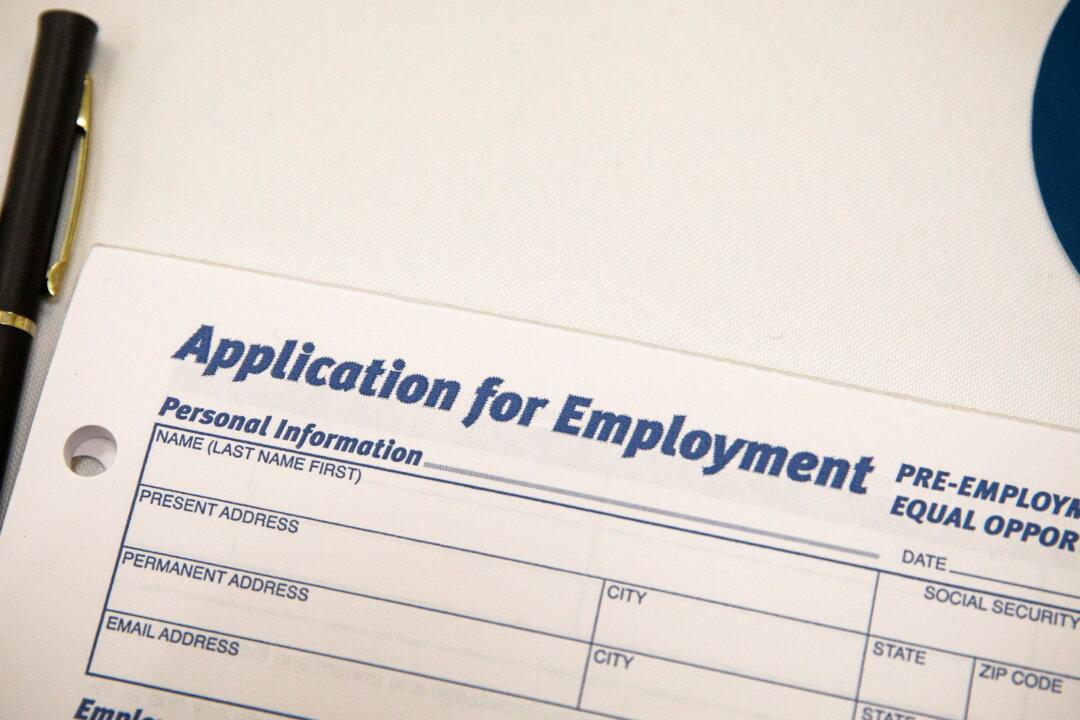Fewer Americans were changing jobs in July compared to the same time in 2021, a sign that the U.S. labor market is cooling, according to the Federal Reserve Bank of New York’s July 2022 SCE Labor Market Survey released on Aug. 22.
The rate of employees quitting their jobs to work for a different employer fell to 4.1 percent in July compared to 5.9 percent 12 months prior.





